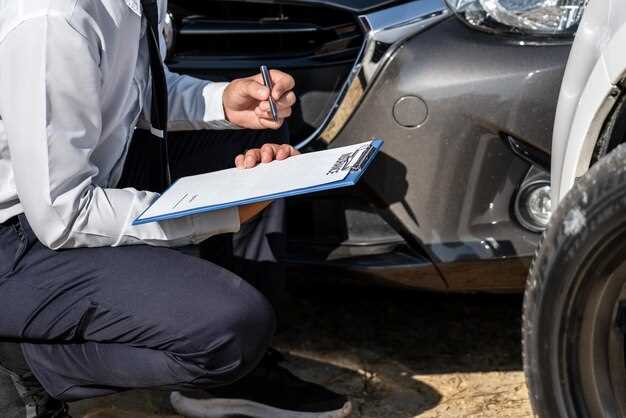
When purchasing a used vehicle, car inspection reports play a crucial role in assessing the overall condition of the automobile. These reports provide insights into various aspects of the vehicle, from mechanical components to safety features. However, not all inspection reports are created equal. Understanding the factors that influence the trustworthiness of these reports is essential for making informed automotive decisions.
One of the primary aspects to consider when evaluating the reliability of a car inspection report is the qualifications and reputation of the inspection service. Certified inspectors with proven experience are more likely to provide accurate and comprehensive assessments. Additionally, the methodologies and equipment used during the inspection can significantly affect the quality of the report. A thorough and standardized inspection process enhances the credibility of the findings documented in the report.
Another critical factor involves the transparency of the inspection report itself. A trustworthy report should detail the inspection criteria, findings, and any recommendations for repairs. This level of transparency not only builds trust with potential buyers but also allows for better negotiation and decision-making. Ultimately, understanding these factors can empower individuals to interpret car inspection reports more effectively and ensure they are making sound investments in their vehicle choices.
Evaluating the Credibility of Inspection Agencies

When assessing the trustworthiness of car inspection reports, the credibility of the inspection agencies that produce these documents plays a crucial role. A reliable agency should possess certification from recognized automotive organizations that validate their testing procedures and standards. This ensures that the inspection methods employed are consistent and meet industry benchmarks.
Furthermore, a reputable inspection agency often has a transparent history, including documented cases of inspections performed and outcomes reported. Potential clients should seek agencies with positive reviews and testimonials from previous customers. This feedback provides insight into the agency’s reliability and the accuracy of their reports.
Another important factor is the experience of the inspectors themselves. Agencies staffed by certified professionals who have extensive training in vehicle assessments will likely provide more thorough inspections and credible reports. Continuous education and familiarity with the latest automotive technologies further enhance their ability to deliver accurate evaluations.
Moreover, agencies that utilize advanced diagnostic tools and equipment indicate a commitment to precision in their inspections. The technology used can significantly impact the accuracy of the findings reported, thus influencing the consumers’ trust in the resulting documentation.
Finally, it is advisable to verify if the agency follows up with a clear process for addressing disputes or discrepancies in the reports they issue. This demonstrates accountability and a willingness to uphold the integrity of their inspections, reinforcing their credibility in the eyes of vehicle owners.
Understanding Vehicle History Records Impact

Vehicle history records play a crucial role in determining the trustworthiness of car inspection reports. These documents provide essential information about a vehicle’s past, including accident history, title status, service records, and any reported damages. A comprehensive history report can significantly influence a buyer’s perception of a vehicle’s reliability and safety.
When inspecting a car, service professionals refer to vehicle history records to uncover any potential red flags that may not be visible during a physical inspection. For instance, a car that has been in multiple accidents may have underlying issues that affect its performance and longevity. This information is vital for both inspectors and prospective buyers, as it helps assess the overall condition of the vehicle.
Moreover, a vehicle history report can enhance or diminish the credibility of an inspection. If the report reveals inconsistencies, such as undisclosed damages or a salvage title, the reliability of the inspection may be called into question. Conversely, a clean history can bolster the trust in the inspection findings, reinforcing the vehicle’s perceived value.
In conclusion, understanding the impact of vehicle history records on car inspection reports is essential for making informed decisions during the buying process. Reliable history records provide context to inspection findings, ensuring transparency and instilling confidence in potential purchasers.
Key Indicators of Reliable Inspection Findings
When evaluating the trustworthiness of a vehicle inspection report, several key indicators can significantly influence the findings’ reliability. Understanding these factors can help consumers make informed decisions regarding their vehicles.
1. Certified Inspectors – The qualifications and certifications of the individuals conducting the inspection play a crucial role. Inspectors should have relevant training and experience in assessing vehicle condition, as this ensures that they can accurately identify issues and provide trustworthy evaluations.
2. Comprehensive Checklists – A reliable inspection report should be based on a thorough checklist that covers all critical components of the vehicle. This includes the engine, brakes, suspension, tires, and body integrity. A detailed list ensures that no area is overlooked during the inspection process.
3. Use of Advanced Equipment – Utilizing modern diagnostic tools and equipment can enhance the accuracy of the inspection findings. Technology allows for more precise measurements and assessments, reducing the likelihood of human error and increasing confidence in the report’s conclusions.
4. Transparency in Findings – A trustworthy inspection report should present findings in a clear and transparent manner. This includes detailed explanations of any identified issues and the corresponding severity levels. Transparency helps clients understand the current state of the vehicle and the rationale behind the inspector’s conclusions.
5. Independent Verification – Reports from independent and unbiased inspection services are generally more reliable than those from dealerships or sellers with potential conflicts of interest. Independent evaluations reduce bias and provide an objective assessment of the vehicle’s condition.
6. Consistent Standards – Adherence to recognized industry standards and protocols is essential for ensuring reliable inspection findings. Reports that align with established guidelines indicate that the inspection process is rigorous and consistent, further bolstering their credibility.
In summary, the reliability of vehicle inspection reports hinges on the qualifications of inspectors, the thoroughness of the inspection process, the use of advanced technology, transparency of findings, independent verification, and adherence to industry standards. Paying attention to these key indicators can guide consumers in their evaluation of the inspection reports they receive.




